The views expressed in our content reflect individual perspectives and do not represent the official views of the Baha'i Faith.
When the mother is wise, then will the children be led into the path of wisdom. – Abdu’l-Baha, Paris Talks, p. 162.
My mom, God rest her soul, had a really hard life.
She grew up in a large, well-off Catholic family in Dallas, Texas—with a mother who was a lifelong alcoholic. For some reason, my grandmother decided, early in my mother’s life, that my mother was going to be the black sheep of the family. As a result, my mom did the chores and scrubbed the floors—and got a great deal of violent abuse, both physical and mental, as her reward. My grandmother had favorites among her eight children, and my mother definitely wasn’t one of them. In fact, if there was a Cinderella in the family, my mother filled the role, treated more like a slave than a child.
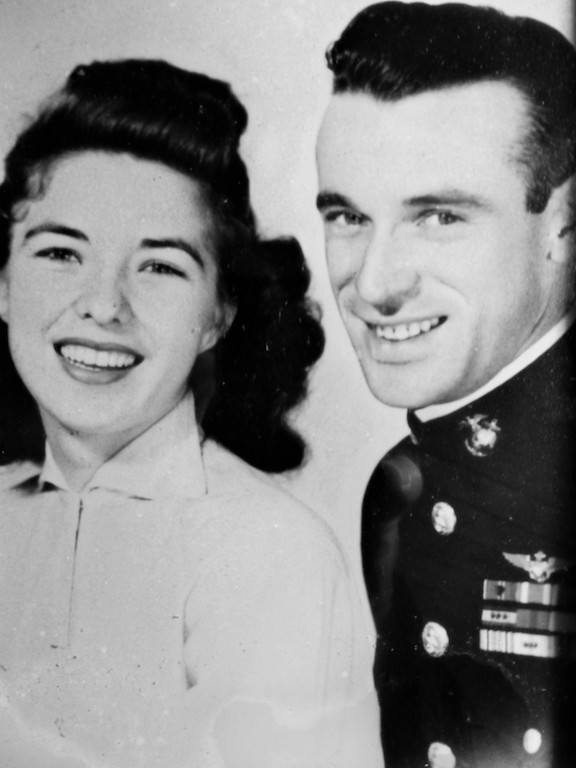
Marine Lieutenant Kenneth Langness and his bride, Mary Margaret Jamison
So, exactly as you might imagine it, Prince Charming rescued my mother from the wicked, brutal grandmother. My father—a tall, handsome Marine officer in a uniform—met my mother on a blind date. They fell in love and eloped. My grandmother disdainfully told my mother, soon pregnant with her first child, that she had married “beneath her station.” She thought my Dad, from a working-class family, wasn’t good enough for her daughter.
That, my mother once told me, was the final insult that caused a lifelong estrangement. My mother disowned her entire family, convinced that her mother and her siblings regarded her with thinly-veiled contempt and hatred. Growing up as the oldest of five children, I never really knew my mother’s family, only hearing about them occasionally and visiting once, on a mission to try and build bridges that didn’t work out well at all.
When my grandmother died, she died alone. None of her grown children or their families bothered to be there. She had apparently alienated everyone close to her with her erratic, angry behavior and her drunken insults. It turned out that my mother was only the first of her children to disown her.
What a huge contrast when my mother died, as her children and several of her grandchildren affectionately stood by her bedside. We held her hands, told her we loved her and prayed for the peaceful journey of her soul as she passed into the next world.
I realized, after she left this life, that my mother had somehow managed to magically transmute the hardships of her childhood into love for her offspring. Instead of repeating the abusive patterns of her own upbringing, and passing them on to another generation, she had the wisdom to raise her children with love, with respect and with equal treatment.
Oh, she wasn’t perfect. She occasionally lapsed into some of her mother’s ways; but on most days and in most of her actions she exemplified caring and kindness.
I think of her now with great respect, love and affection.
I marvel, as a parent myself, how she managed to so radically turn things around in the space of one generation. Rather than doing what most parents inevitably do—raising their children exactly as their parents raised them—she put an enormous amount of thought and effort into her child-rearing. She consciously tried to correct the major parental malpractice she had experienced, and wisely sought out, read and applied the newest parenting advice she could find. She wanted her children to grow up happy, and not suffer the way she suffered.
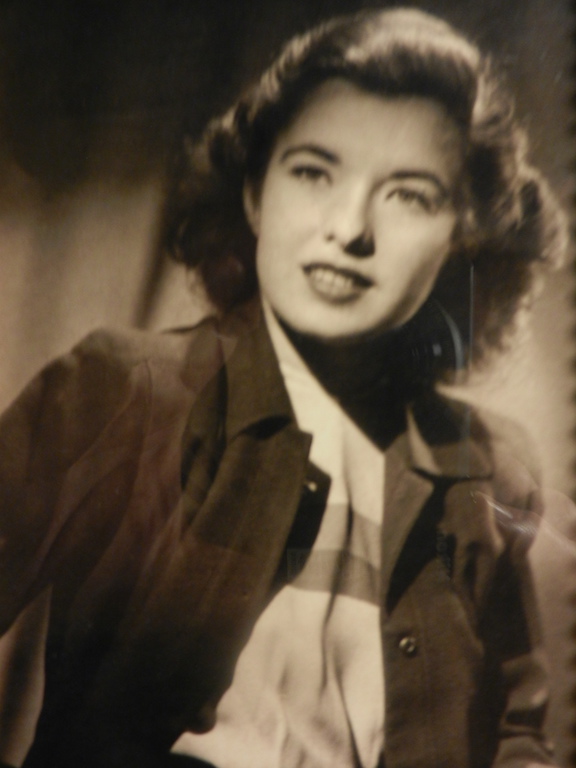
Mary Margaret Jamison Langness
All five of her children became Baha’is. She never did formally enter the Baha’i community, but she loved Baha’u’llah and his teachings, because she saw the difference they made in the adult lives of her children. As I reflect on my childhood now, I know that we became Baha’is because of the values and the love she raised us with. She taught us to be fair, to respect all people and consider their needs first, to fight for the underdog, to try never to be a source of pain or hurt to another human being. Without knowing it consciously, she exemplified the Baha’i teachings:
O ye lovers of God! Be kind to all peoples; care for every person; do all ye can to purify the hearts and minds of men; strive ye to gladden every soul. To every meadow be a shower of grace, to every tree the water of life; be as sweet musk to the sense of humankind, and to the ailing be a fresh, restoring breeze. Be pleasing waters to all those who thirst, a careful guide to all who have lost their way; be father and mother to the orphan, be loving sons and daughters to the old, be an abundant treasure to the poor. Think ye of love and good fellowship as the delights of heaven, think ye of hostility and hatred as the torments of hell. – Abdu’l-Baha, Selections from the Writings of Abdu’l-Baha, pp. 244-245.
On this Mother’s Day, I wanted to thank my mom—Mary Margaret Jamison Langness—for her intentionality, for her greatness of heart, for her love, for her striving to gladden every soul. You might want to reflect on your own upbringing, too, and thank your mother for who you became.





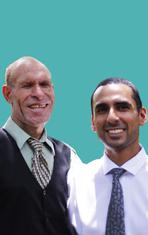

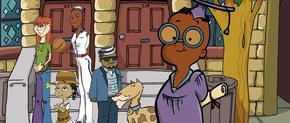


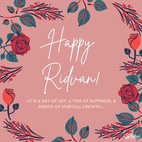
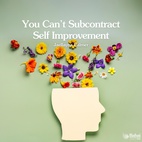
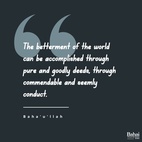
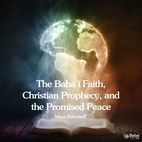
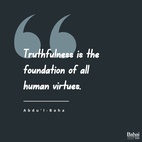
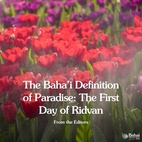

Comments
Sign in or create an account
Continue with Facebookor